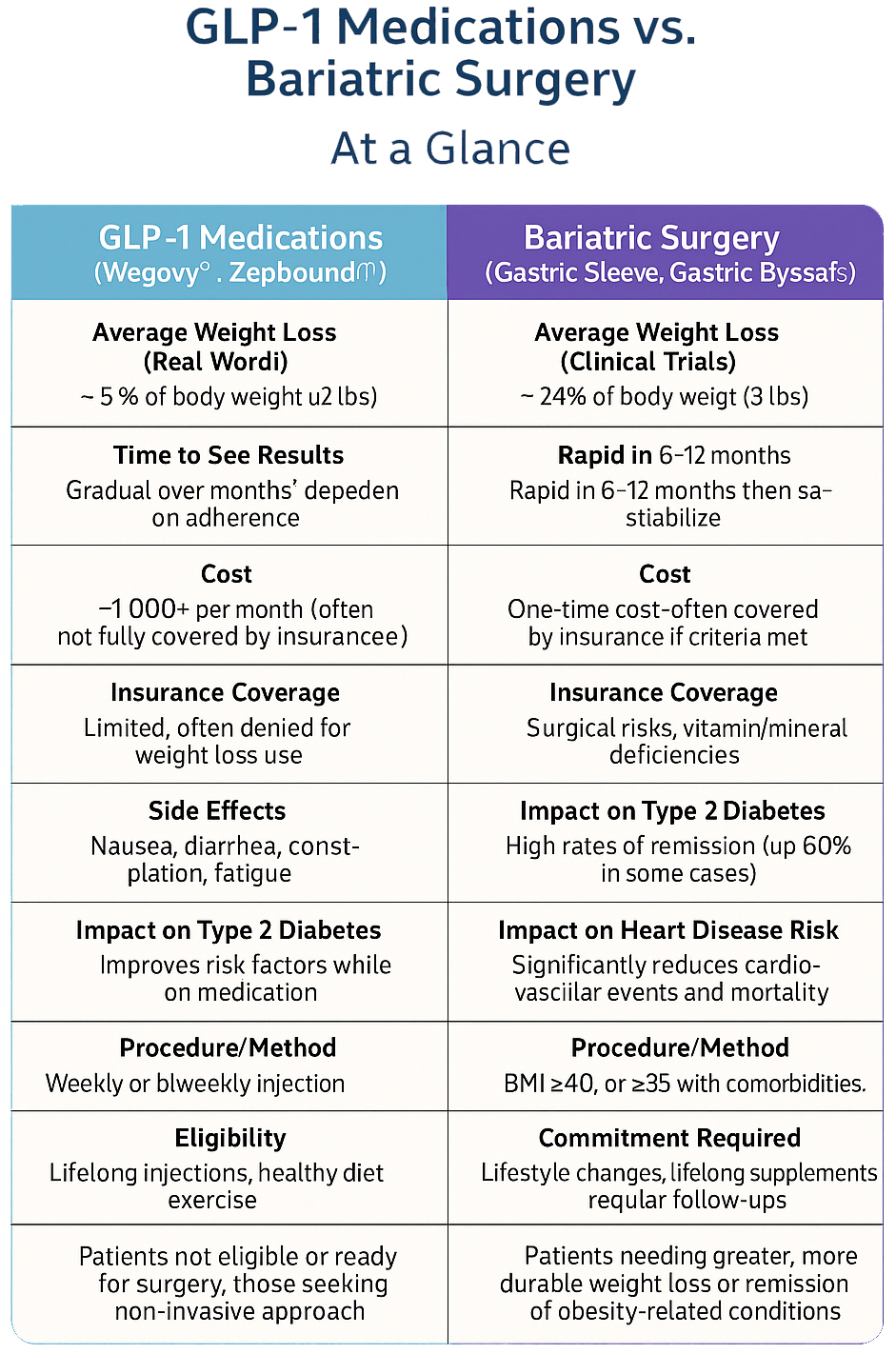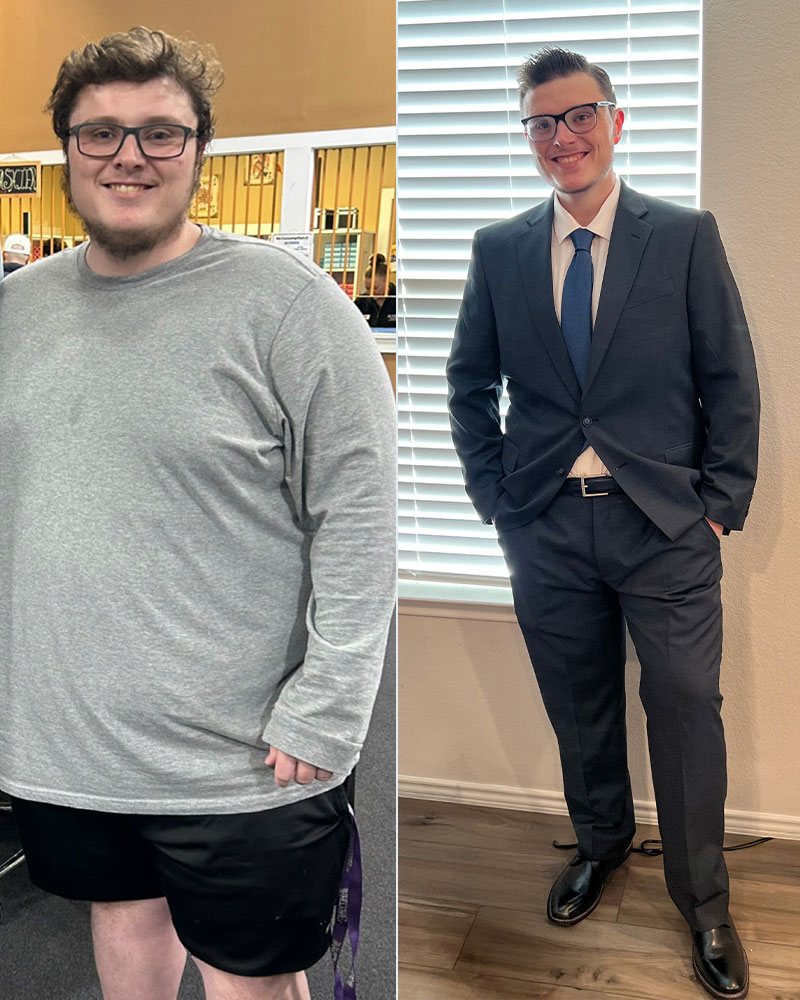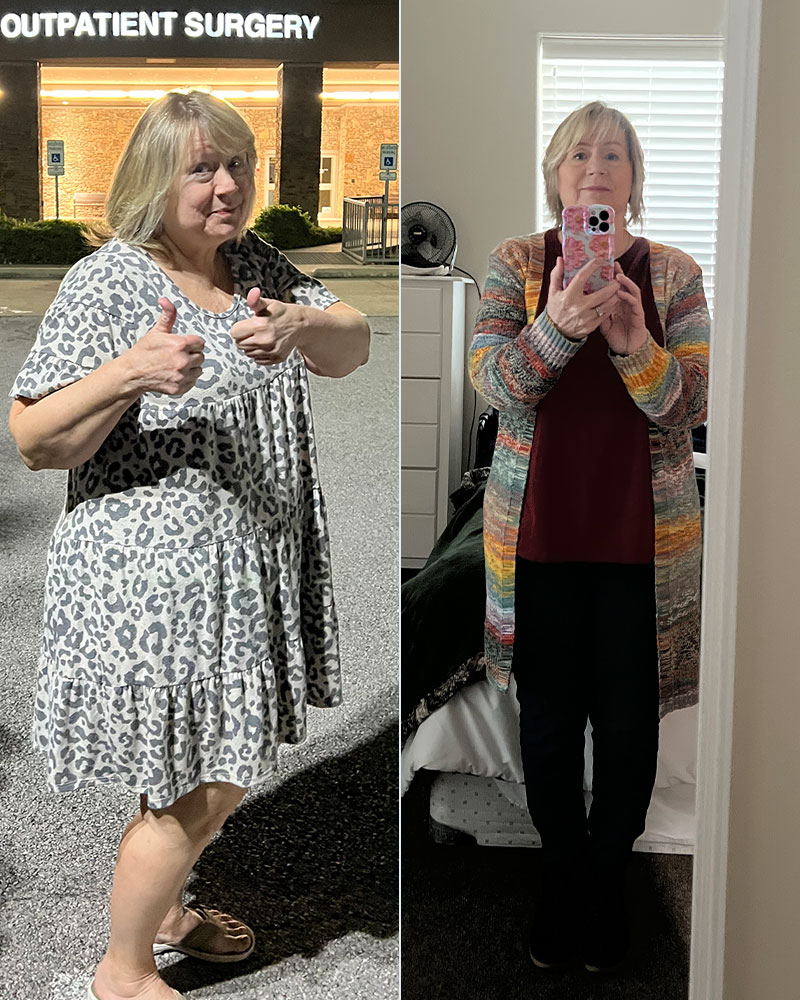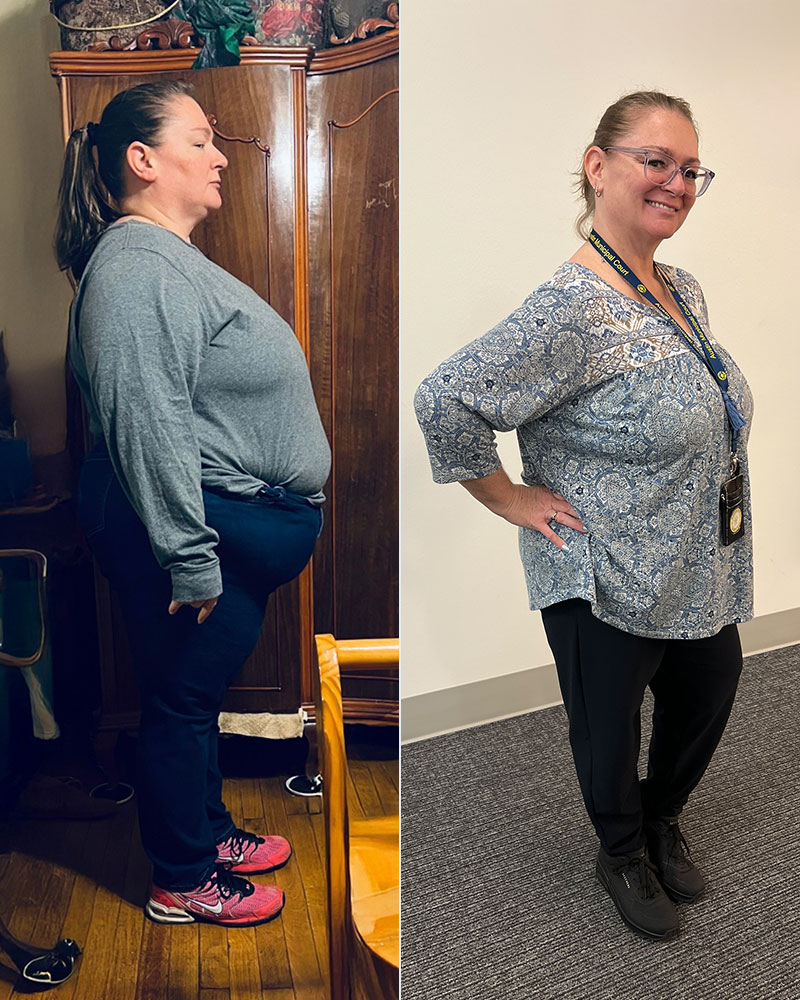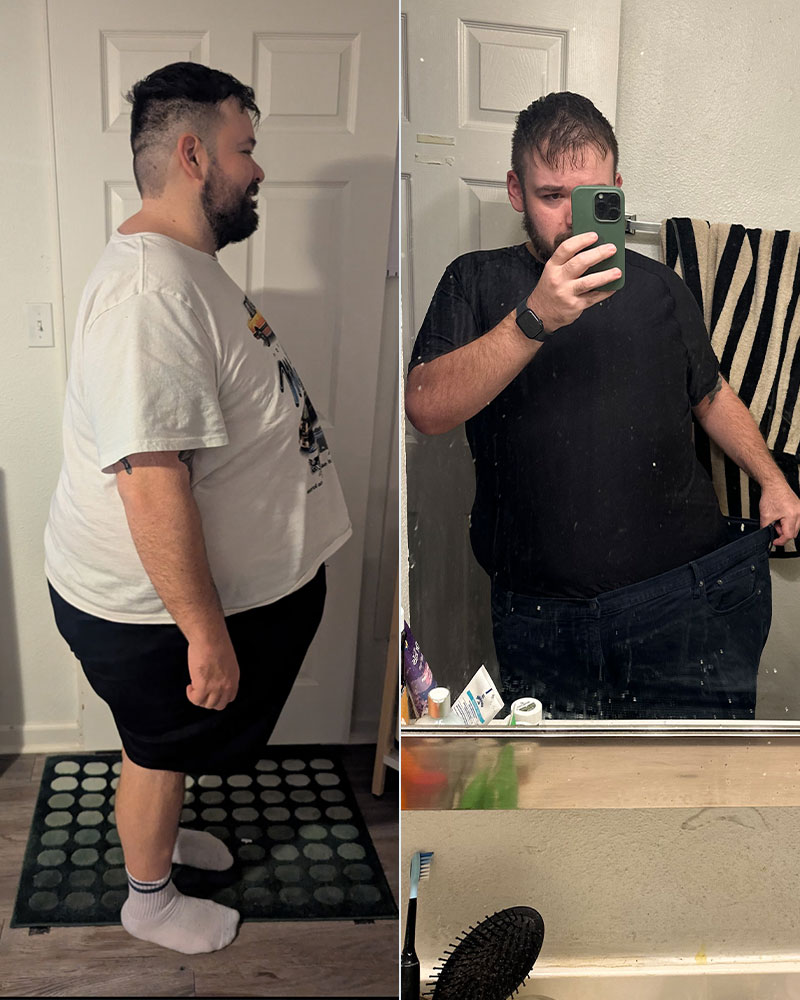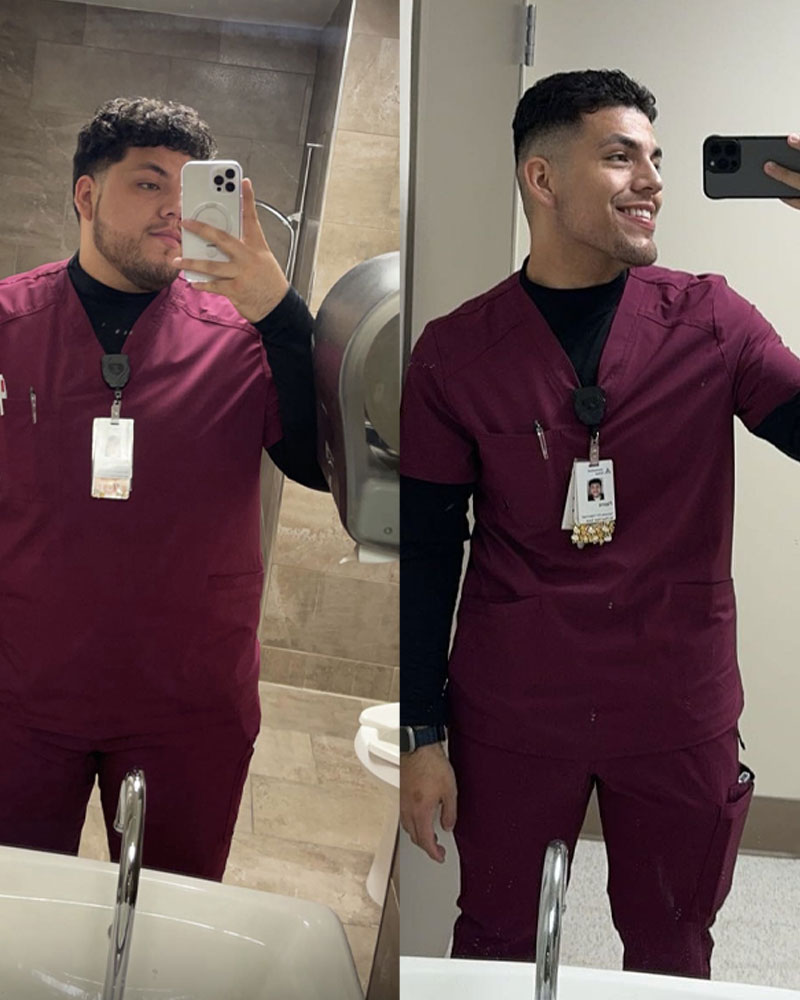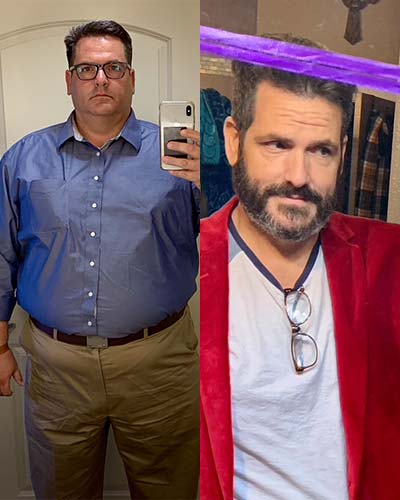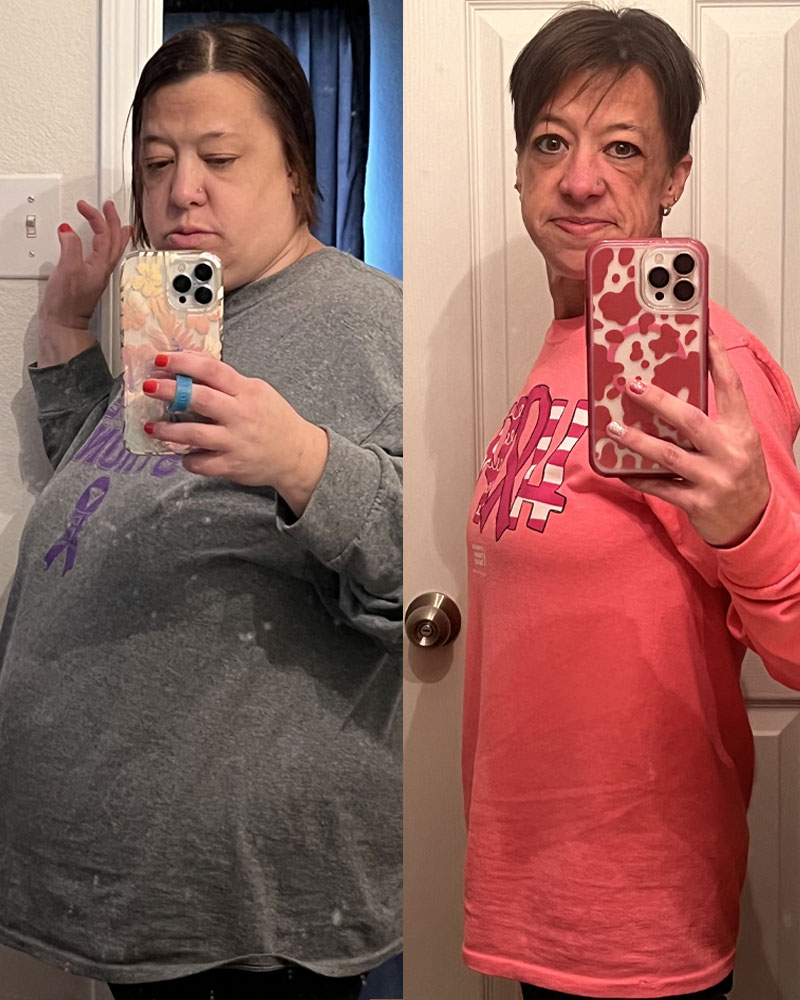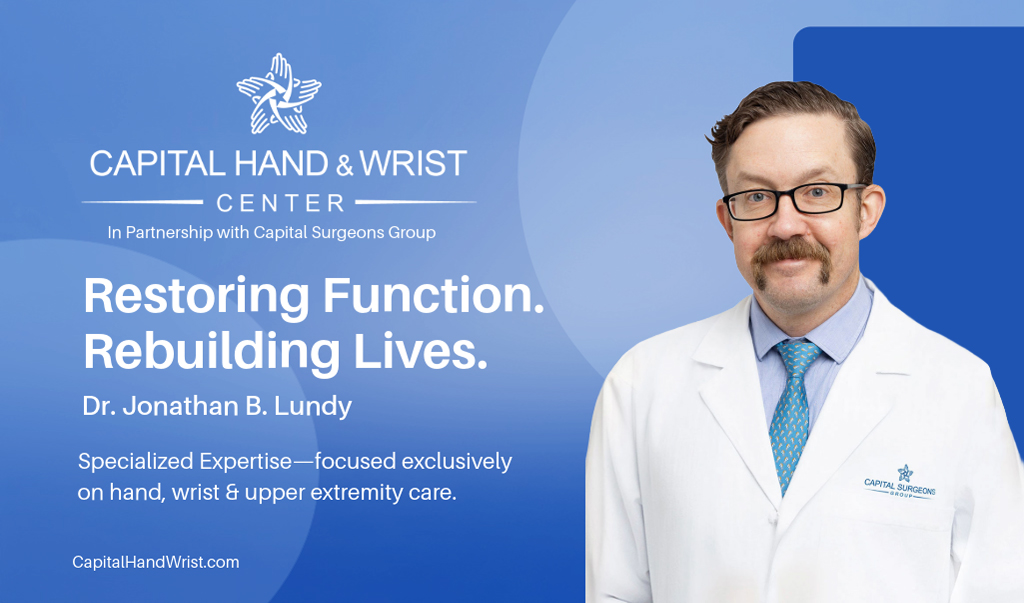Which Is More Effective for Lasting Weight Loss?
The recent surge in popularity of medications like Wegovy® (semaglutide) and Zepbound™ (tirzepatide) (tirzepatide) has changed the landscape of medical weight loss. Originally developed for diabetes management, these GLP-1 receptor agonists have shown impressive results in clinical trials — helping many patients lose 15–21% of their body weight under controlled study conditions.
But how do they compare to bariatric surgery, the long-established and most effective treatment for obesity?
A groundbreaking study presented at the 2024 American Society for Metabolic and Bariatric Surgery (ASMBS) Annual Meeting offers a clear answer — and it could reshape the conversation around medical versus surgical weight loss.
The Study: Real-World Weight Loss Outcomes
Researchers analyzed data from over 50,000 adults with obesity:
- 38,545 patients received a GLP-1 medication such as semaglutide or tirzepatide
- 12,540 patients underwent bariatric surgery, primarily gastric bypass or sleeve gastrectomy
Key Findings:
- Surgery patients lost an average of 24% of their body weight over two years — about 58 pounds.
- GLP-1 patients lost only 5%, (about 12 pounds) in the same timeframe.
- Even patients who stayed on GLP-1 medications for a full year lost significantly less weight than surgical patients.
“Clinical trials show weight loss between 15% and 21% for GLP-1s, but this study suggests that real-world outcomes are much lower,” said Dr. Avery Brown, lead study author and surgical resident at NYU Langone Health.
Why the Big Difference?
1. Medication Adherence in the Real World
In controlled trials, participants are closely monitored and encouraged to stay on their medication regimen. In reality, up to 70% of patients stop GLP-1 treatment within a year — most often due to:
- High cost (GLP-1s can cost $1,000+ per month without insurance)
- Loss of insurance coverage for weight loss treatment
- Side effects such as nausea, diarrhea, constipation, or fatigue
- A Misconceptions — some patients stop once they lose initial weight, believing they no longer need the medication
2. Lack of Comprehensive Support
GLP-1s are sometimes prescribed without a broader weight management program. Success rates increase when these medications are paired with nutrition counseling, behavioral therapy, and regular medical follow-up.
“GLP-1 drugs should be prescribed thoughtfully and with close clinical follow-up. We can’t just hand them out like candy,” says Dr. Karan Chhabra, bariatric surgeon and senior study author.
What Makes Bariatric Surgery More Effective?
Bariatric surgery is more than stomach size reduction — it triggers a metabolic reset. Procedures like gastric sleeve or gastric bypass physically limit food intake and alter gut hormone signaling, producing effects such as:
- Reduced appetite
- Improved insulin sensitivity
- Favorable changes in metabolism that help sustain long-term weight loss
Additional Benefits of Surgery:
- 20–35% average total body weight loss (some patients achieve 50% or more)
- High rates of remission or significant improvement in:
- Type 2 diabetes
- High blood pressure
- Sleep apnea
- High cholesterol
- Long-term cost savings compared to decades of prescription medication
- A one-time procedure with durable, decades-long results when combined with healthy habits
Side-by-Side Comparison
To help you see the differences at a glance, here’s how GLP-1 medications stack up against bariatric surgery in the real world:
| Feature | GLP-1 Medications (e.g., Wegovy®, Zepbound™) |
Bariatric Surgery (Gastric Sleeve, Gastric Bypass) |
|---|---|---|
| Average Weight Loss – Real World | ~5% total body weight (~12 lbs in 2 years) |
~24% total body weight (~58 lbs in 2 years) |
| Average Weight Loss – Clinical Trials | 15–21% with consistent, long-term use | 20–35% on average; some patients lose 50% or more |
| Treatment Type | Ongoing weekly injections | One-time surgical procedure |
| Speed of Results | Gradual — noticeable in 3–6 months | Rapid — most weight lost within first 6–12 months |
| Durability of Results | Maintained only while taking medication | Long-lasting metabolic changes that support lifelong results |
| Impact on Type 2 Diabetes | Lowers blood sugar; may reduce medication needs | Often leads to full remission and elimination of diabetes medications |
| Other Health Benefits | Can improve blood pressure, cholesterol | Frequently resolves or improves sleep apnea, hypertension, cholesterol, and heart health |
| Common Side Effects / Risks | Nausea, diarrhea, constipation, fatigue | Surgical risks (bleeding, infection, leaks), vitamin/mineral deficiencies |
| Typical Cost | $1,000+ per month without insurance | $15,000–$25,000 (often covered by insurance if criteria are met) |
| Insurance Coverage | Limited for weight loss; better for diabetes | Commonly covered for BMI ≥40, or ≥35 with serious health conditions |
| Best Candidates | BMI 27–35 without surgical eligibility; those not ready for surgery | BMI ≥40, or ≥35 with obesity-related health problems |
| Maintenance Requirements | Long-term or lifelong use for sustained results | Lifelong vitamin supplements, follow-up visits, and healthy lifestyle |
| Best Use Case | Early intervention, pre-surgery prep, or post-surgery weight regain | Maximum, durable weight loss and major health improvement |
GLP-1 Medications Still Have a Role
While the study shows bariatric surgery typically delivers greater and longer-lasting results, GLP-1s remain an important tool in certain scenarios:
- For patients who don’t qualify for surgery (BMI under 35 without comorbidities)
- For those who aren’t medically cleared for anesthesia or major surgery
- As a first step before surgery for patients who prefer a less invasive approach
- Before surgery to reduce liver size and surgical risks
- After surgery to help maintain results for those who experience weight regain years later
How to Decide: GLP-1s or Surgery?
At Capital Surgeons Group, we guide patients through this decision with clarity and compassion. We encourage you to consider:
Do You Want to Stop Taking Medications?
Surgery may be the better fit if your goal is to reduce or eliminate long-term prescriptions — not just for weight loss, but for related conditions like diabetes or hypertension.
How Much Weight Do You Need to Lose?
GLP-1s often lead to 30–50 pounds of weight loss, while surgery can result in far greater total body weight reduction, particularly in those with a BMI over 40 or severe obesity-related health issues.
What Preexisting Conditions Do You Have?
- Acid reflux — GLP-1 drugs may worsen symptoms, while gastric bypass often improves them
- Diabetes — Both treatments can help, but surgery has higher remission rates
- Heart disease — Surgery has been shown to lower cardiovascular risk and improve survival
Are You Ready for a Long-Term Commitment?
GLP-1s require ongoing — possibly lifelong — injections to maintain results. Bariatric surgery is a single procedure, but success depends on consistent follow-up care, nutritional supplementation, and a commitment to healthy living.
The Bottom Line: Personalized Care Is the Key
No two patients are alike — and no single treatment works for everyone. The most important step is a comprehensive, evidence-based consultation with a weight loss specialist.
At Capital Surgeons Group, our team of board-certified surgeons, nutritionists, and medical weight loss experts helps you choose the safest and most effective path for lasting results — tailored to your goals, lifestyle, and medical history.
Sources:
- American Society for Metabolic and Bariatric Surgery (ASMBS), 2024 Annual Meeting
- NYU Langone Health – Bariatric Surgery Research
- TODAY Health – GLP-1 Drugs vs. Bariatric Surgery Coverage
- National Institutes of Health – Obesity Research
- The New England Journal of Medicine – Semaglutide in Weight Management
- Obesity Surgery Journal
- JAMA Network Open – Bariatric Surgery and Long-Term Outcomes
👉 Not sure which is right for you? ? Take our quick 2-minute assessment.
Take the First Step in Knowing if Weight Loss Surgery is Right for You
Real People, Real Results
Hear How Weight Loss Surgery Changed Their Lives
You May Also Like
Make an informed, confident decision about surgery by understanding your options, risks, recovery, and whether a non-surgical path may be right for you. [...]
Experience minimally invasive surgery at Capital Surgeons Group, combining advanced robotic and laparoscopic techniques for faster recovery and less pain. [...]
Capital Hand & Wrist Center, led by Dr. Jonathan Lundy, provides expert, compassionate care for hand, wrist, and upper extremity conditions in Austin. [...]
GLP-1 drugs offer non-surgical weight loss, while bariatric surgery provides lasting metabolic changes—we break down which option suits different needs. [...]
Discover how bariatric surgery offers 80% long-term success and can reverse chronic conditions like diabetes and sleep apnea. [...]
Understand how excess weight affects heart disease, life expectancy, and daily function—and how surgical treatment can change the trajectory. [...]
Learn why bariatric surgery offers lasting, life-changing weight loss and significant health benefits beyond medications. [...]
Bariatric “Weight Loss” Surgery: What You Need to Know
Your Authority in
Weight Loss Surgery
Discover the latest procedures and research on new weight loss drugs. Capital Surgeons Group provides expert weight loss solutions with advanced laparoscopic surgery and personalized care. [...]
Bariatric Surgery vs.
Weight Loss Drug
Explore Bariatric Surgery vs. Weight Loss Medications. Surgery offers greater weight loss and health benefits, but is invasive. Medication is easier on the body but has side effects and less weight loss. A doctor can help you choose the best option based on your needs. [...]
Long-Term
Weight Loss Solutions
Learn about the power of surgical weight loss, including the three laparoscopic weight loss surgery options, the top four benefits of weight loss surgery, and whether bariatric surgery is right for you. Discover how to embrace a healthier lifestyle post-surgery. [...]
Prepare for
Weight Loss Surgery
Preparing for weight loss surgery is essential for a positive outcome. Here are some important steps to take, including consulting a healthcare professional, researching the different types of surgery, making dietary and lifestyle changes, and building a strong support system. [...]
Benefits of
Weight Loss Surgery
Weight loss surgery can lead to significant and sustained weight loss, improved obesity-related health conditions, enhanced quality of life, and long-term health benefits. Learn more about the benefits of weight loss surgery today and consult with your healthcare professional to see if it's right for you. [...]
Am I a Candidate
for Bariatric Surgery?
Find out if you're a candidate for bariatric (weight loss) surgery. Learn more about the key factors that healthcare professionals consider, including BMI, weight loss attempts, health issues, psychological well-being, commitment to lifestyle changes, and more. [...]
What is Bariatric Surgery?
Discover the life-changing benefits of bariatric surgery, including weight loss, improved health, and increased self-confidence. Explore the various types of procedures, from sleeve gastrectomy to gastric bypass, and learn what to expect before, during, and after surgery. [...]
Bariatric Revision Surgery
Learn about Bariatric Revision Surgery and Adjustable Gastric Band Removal. Explore the procedure details and the compelling benefits of these weight loss solutions. [...]
Duodenal Switch “SADI”
Explore the transformative Duodenal Switch procedure, also known as SADI, and discover how it can positively impact your health. Learn about the benefits, risks, and post-operative care involved in this weight loss surgery. [...]
Gastric Bypass Surgery for
Effective Weight Loss
Gastric bypass surgery is a highly effective weight loss procedure that can help you achieve significant and lasting weight loss. Discover how this life-changing surgery can improve your health and overall well-being. [...]
Sleeve Gastrectomy
Changes Lives
Learn more about the benefits of sleeve gastrectomy and how we use the da Vinci robotic surgery system to provide our patients with the best possible care. [...]



